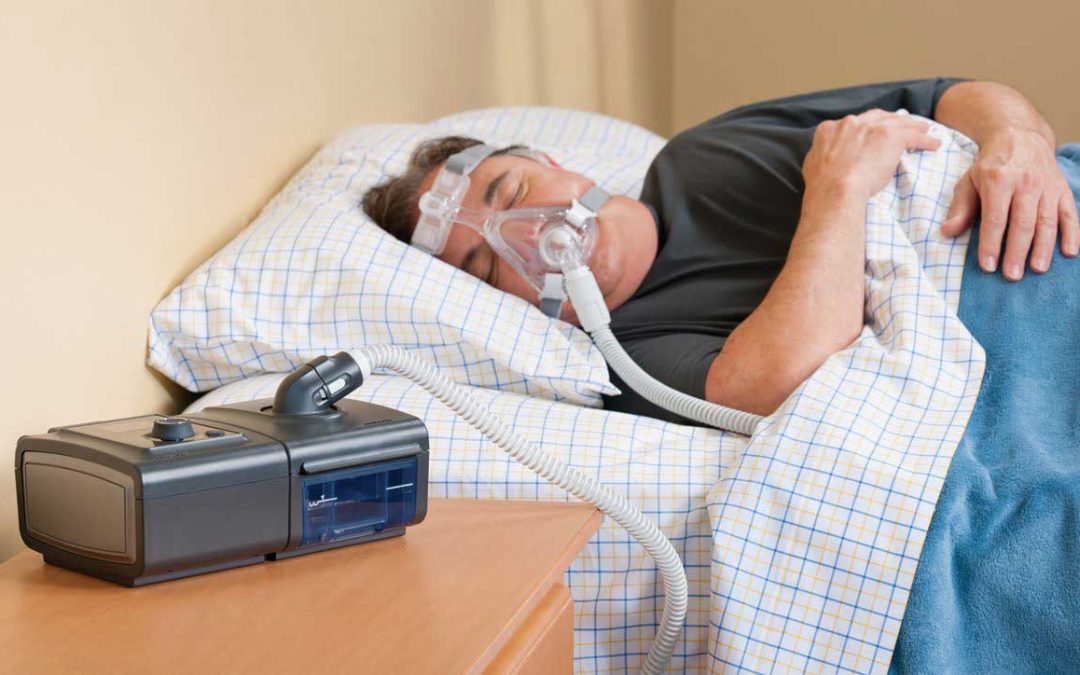What is Sleep Apnea and how to treat it. The role of CPAP & BiPAP machines and where to get them in Kenya!
What is Sleep Apnea?
Apnea is a pause in breathing. Sleep apnea is a serious sleep disorder that causes you to stop breathing for seconds or minutes at a time. This can happen many times during the night, as many as 30 times or more in an hour (1).
Incidentally it’s a very common condition than most people realize!

Snoring is a common symptom of sleep apnea
Symptoms of Sleep Apnea
How can you tell if you have sleep apnea? There are several symptoms of sleep apnea:
- Loud snoring, gasping for air, and interruptions in breathing when sleeping
- Daytime sleepiness or fatigue
- Unrefreshing or restless sleep
- Heavy night sweating
- Insomnia
- Morning headaches
- Waking frequently during the night to go to the bathroom
- Difficulty concentrating
- Memory loss
- Decreased sexual desire
- Difficulty maintaining an erection
- Irritability
Does this sound familiar?
Before we dive into how to treat sleep apnea, let’s look at the different types of sleep apnea:
Types of Sleep Apnea
There are 3 types of sleep apnea:
Obstructive sleep apnea (OSA)
This is the most common type of sleep apnea, and happens when the muscles and tissues around your throat relax and block air from passing through.

Common causes of OSA are obesity, use of alcohol or cigarettes, or a family history.
Central sleep apnea (CSA)
This happens when your brain stops sending signals to the muscles that control breathing. In other words, you stop breathing even if your airways are open. This can happen due heart failure, taking opioids, etc.
Complex (or mixed) sleep apnea
This means you have both obstructive and central sleep apnea.
Causes of Sleep Apnea
The major cause is excess weight, even though slim people can have sleep apnea as well. Here are the most common risk factors:
- Excess weight
- Large neck size – A large neck has more soft tissue that can block your airway during sleep
- Hypertension
- Having large adenoids or tonsils
- Type 2 diabetes
- High blood pressure
- Stroke
- Heart failure
- Neuromuscular conditions that interfere with brain signals to airway and chest muscles
- Sedation – especially medication and alcohol
- Middle age and gender – more males tend to have sleep apnea than females. It’s also more common in the middle age
How To Treat Sleep Apnea
There are several ways to treat sleep apnea such as losing weight, sleeping on your side instead of the back, quit smoking, or taking alcohol before sleeping, etc.
However, these may not always work or provide a short-term solution for you. In this case, there are 2 machines available for you:
Types Of Sleep Apnea Machines – CPAP and BiPAP Machines
Both CPAP and BiPAP machines send air through a tube into a mask that fits over the nose. Both serve a common function – to get you a restful, good night sleep.
Even though both machines help the patient breathe better, they both have some fundamental differences:
CPAP (Continuous Positive Airway Pressure) is a ventilation method that applies constant pressure greater than atmospheric pressure to the upper respiratory tract of a person.
BiPAP (Bi-Level Positive Airway Pressure) – While CPAP generally delivers a single pressure, BiPAP delivers two: an inhale pressure and a lower exhale pressure.
A CPAP machine is usually used to treat mild to moderate obstructive sleep apnea. People with CSA or complex sleep apnea need a BiPAP machine.
Differences between CPAP & BiPAP machines
Even though they look quite similar, a BiPAP machine is more advanced, and solves certain issues associated with CPAP machines:
1) BiPAP machine applies more than one pressure:
Patients on CPAP machines often find the constant pressure forcing air into their airways uncomfortable to breathe against, especially when exhaling.
A BiPAP machine reduces the pressure level during exhalation, allowing the patient to exhale more easily and breathe more comfortably.
2) They serve different patients:
Since a BiPAP machine increases pressure when breathing in and reduces pressure when breathing out, breathing becomes more comfortable and natural.
Because of this, BiPAP can be used for patients with more serious conditions such as congestive heart failure and other serious diseases affecting the heart and lungs.
3) BiPAP machines have more advanced settings:
People with nerve and muscle problems need the BiPAP machine rather than the CPAP machine. In fact, BiPAP machines can be set for the patient to breathe a set number of times per minute.
Where to Get CPAP and BiPAP Machines in Kenya
We are fully stocked for both CPAP and BiPAP machines. We also deliver countrywide. Contact us (below) to get one.
- Call [randomize]
 Click to chat on WhatsApp
Click to chat on WhatsApp
Send Us an Email:
[contact-form-7 id=”4″ title=”Contact form 1″]
In Summary,
Sleep apnea is a common condition that can become serious, drastically affecting the quality of life.
Reducing weight, quitting smoking, leading an active lifestyle, are some of the ways you can treat apnea. However, the most common treatment is Positive Air Pressure (PAP) using CPAP or BiPAP machines to help in breathing continuously and prevent snoring, choking or snorting when sleeping.
Any questions and comments?
Please submit them below.



